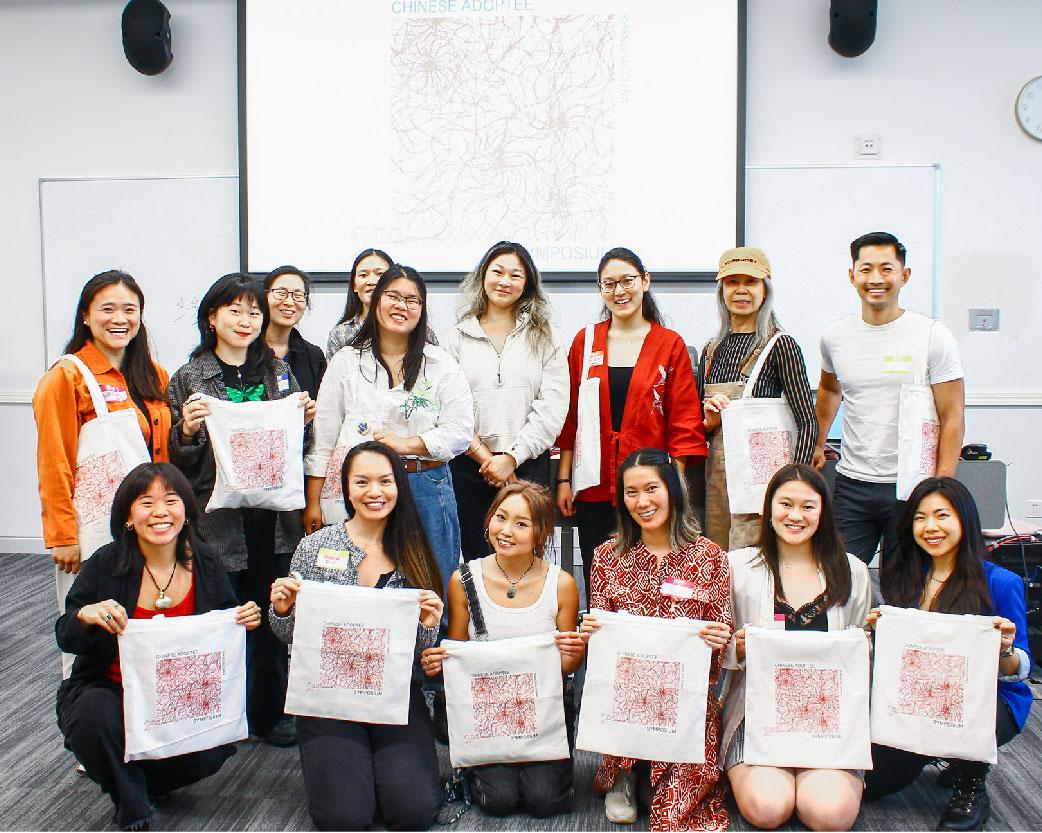China’s family planning policies, including the “One Child Policy,” which was in effect for roughly 30 years, have had ripple effects on every corner of Chinese society. Those ripples went much farther, as between 1999 to 2015, more than 80,000 children were adopted from China into families in the US and other countries . Now, as those children come of age, many of them are choosing to come to China for travel, work, or study, eager to explore their birth culture and reclaim their history on their own terms. A growing community of adoptees has connected with each other at NYU Shanghai.
On April 27, the second annual Adoptee Symposium was hosted at the New Bund campus, bringing together 17 adoptees who were raised in Europe, Canada, the US, and China, including seven who work or study at NYU Shanghai and 10 others who traveled from as far as Xi’an, Hangzhou, and Canada to attend the event. The two-day symposium was organized by adoptee faculty, staff, and students and held at the Center for Student Belonging.
Research Assistant Professor of Psychology Daniel Jin Blum, a Korean adoptee, is one of the team of organizers, and also co-facilitated a discussion during last year’s inaugural symposium. “As a transnational and transracial adoptee, choosing to return to one’s country of heritage can be deeply transformative, especially with the active support of fellow adoptees locally,” he said. “Our intention for organizing the second Chinese Adoptee Symposium in Shanghai was to nurture the growing community of Chinese adoptees returning to China through adoptee-led research, narratives, and resources.”.
Agnes Zhu, manager of the Center for Student Belonging, emphasized the importance for adoptees to have this space to connect. “My hope is that they find their sense of belonging not only among NYU Shanghai’s diverse population but also within Shanghai as a city as well,” she said.
The theme of this year’s symposium was community, and adoptees discussed topics including learning their birth language, understanding the birth parent search, and reflecting on the idea of homecoming.
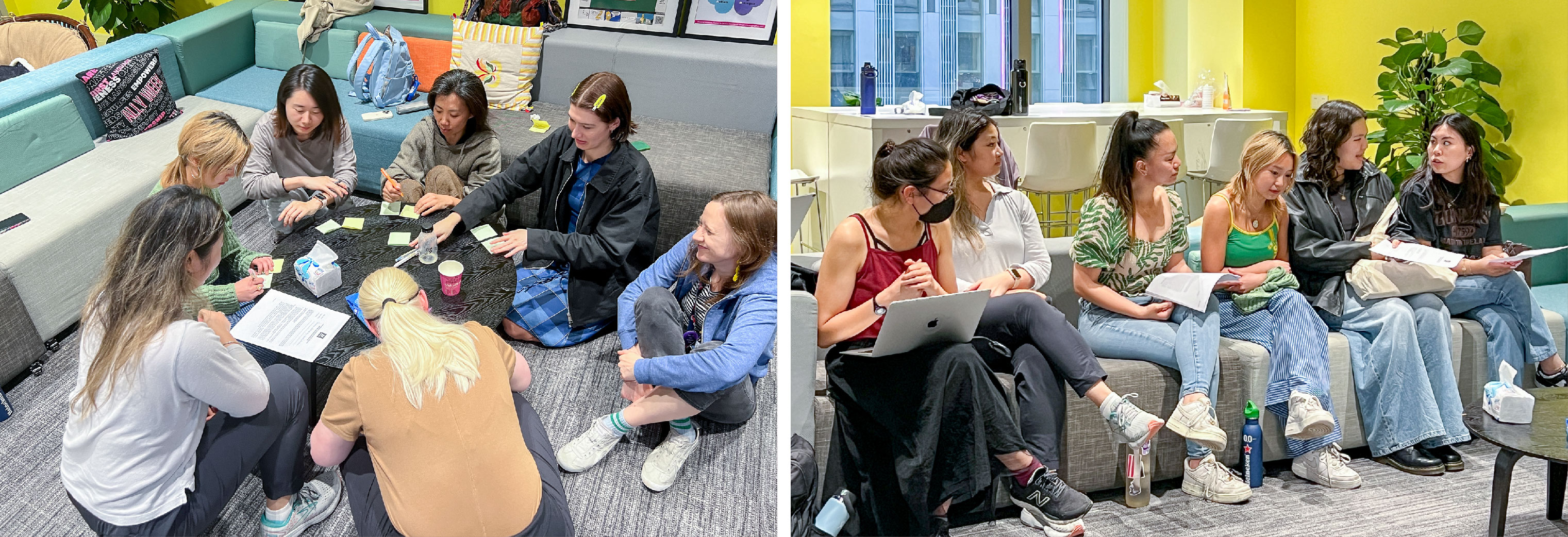
Attendees participating in the April 24 event “I’m Part of Something Larger?” in the Center for Student Belonging.
The symposium featured events open to the general NYU Shanghai community and others designed specifically for the adoptee attendees. At the first event, “I’m Part of Something Larger?,” hosted in the Center for Student Belonging on April 24, Senior Global Writing and Speaking Fellow Yuechi Kelly, who is adopted from Hunan Province, and Emma Roberts-Vaurio MSW ’25, who is adopted from Hubei Province, introduced two academic frameworks surrounding adoptee identity, including the Adoptee Consciousness Model and The Model of Reculturation for International Transracial Adoptees and then led a discussion.
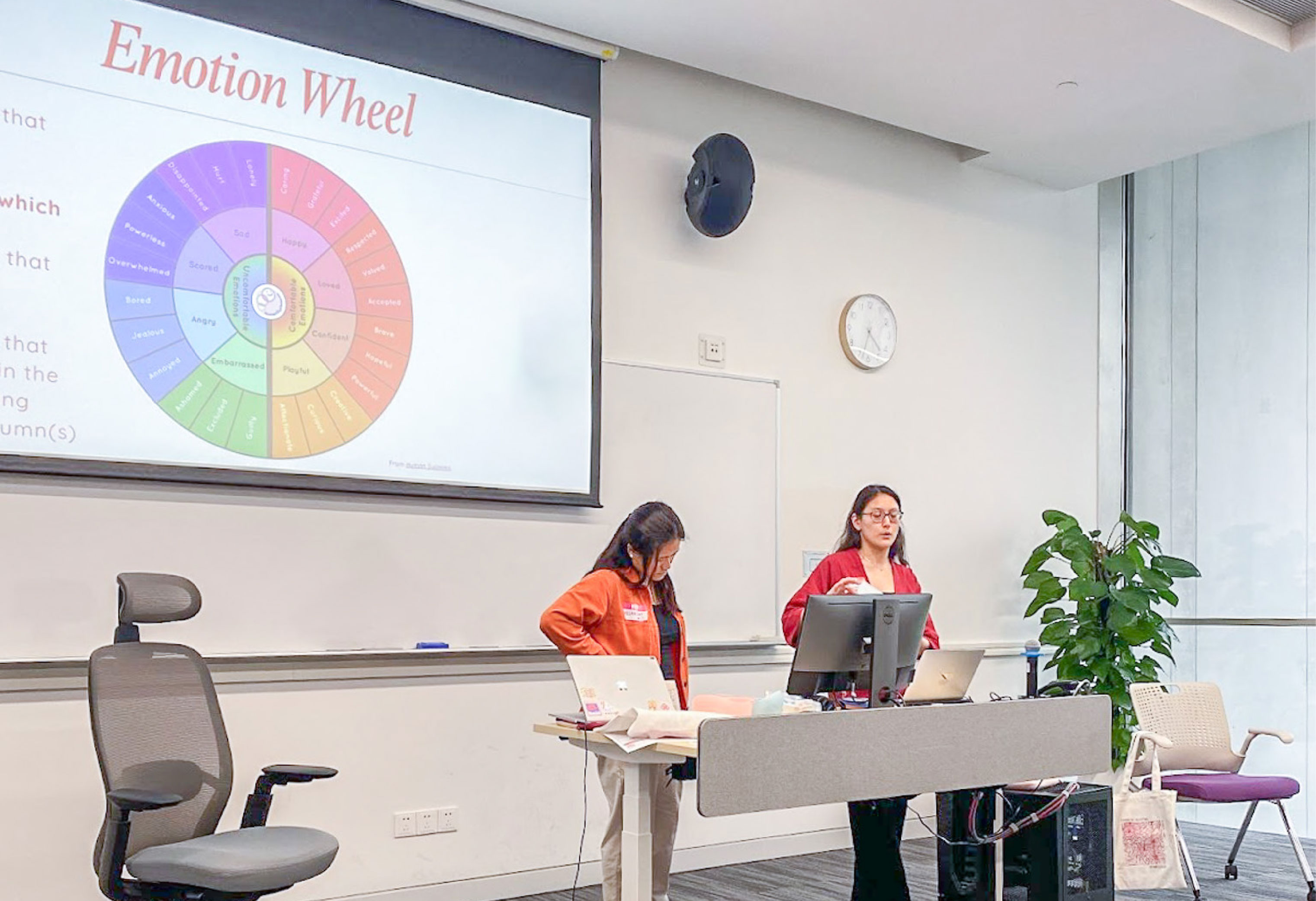
Megan S. (left) and Yuechi Kelly (right) presenting a session on Adoptee Language and Power on April 27 at the Second Annual Adoptee Symposium on the New Bund campus. photo credit: Tong Zhou Lafrance
The symposium continued with activities to allow the participants to get to know and learn from each other. Yuechi Kelly and Zhejiang-born adoptee Megan S. presented a session on Adoptee Language and Power, leading a discussion on the emotions and power dynamics associated with learning Mandarin. They asked participants to write notes to their past, present, or future selves, offering words of affirmation about their language learning.
“My hope was to generate meaningful conversation among adoptee community members about our challenges and our triumphs, particularly while living in China, so that we can reassure each other that we’re not alone,” Kelly said.
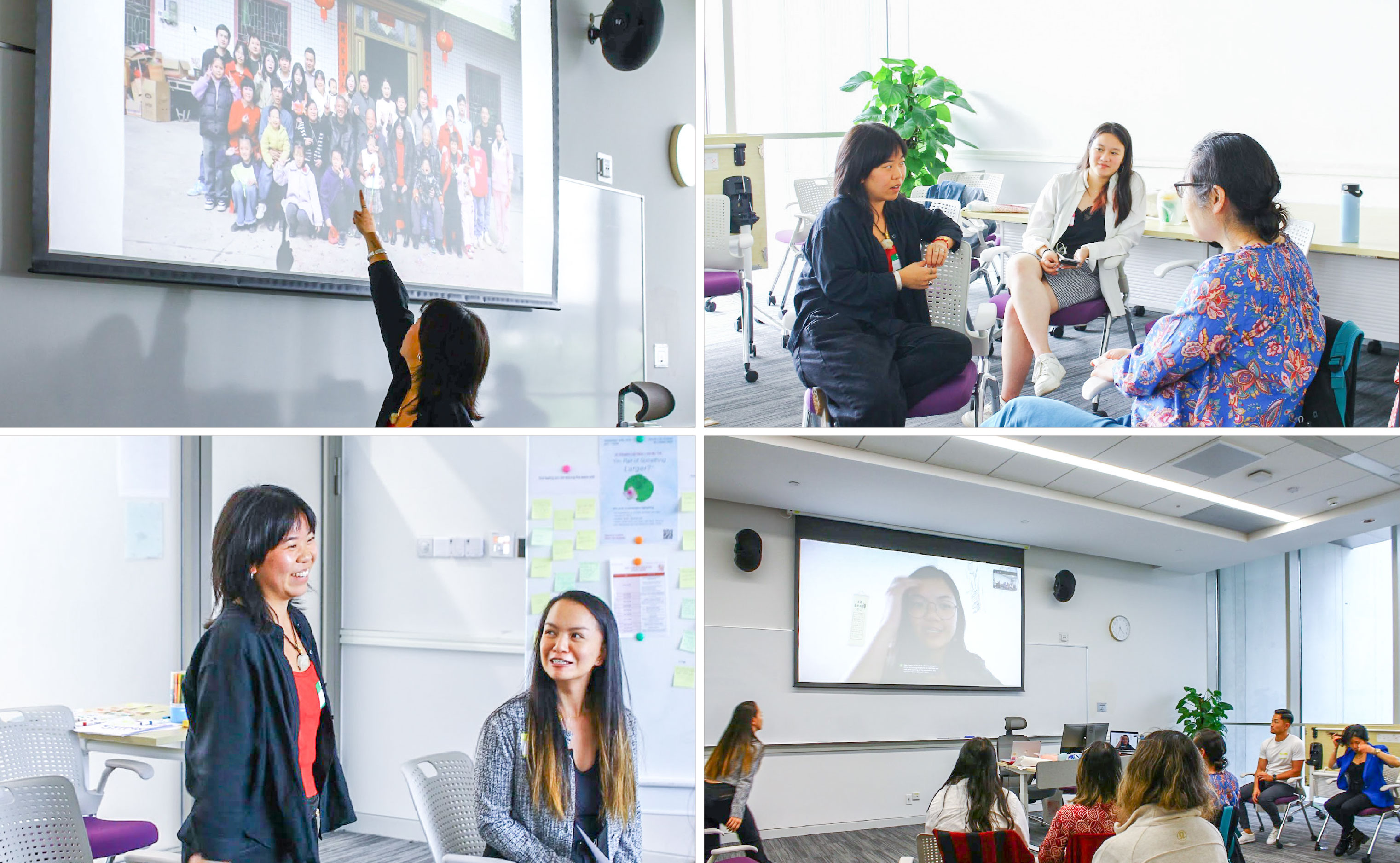
Emerald Repard-Denniston sharing her experience meeting her birth parents in Hunan Province. Another adoptee, Ester Gustafsson (bottom right, on screen) sharing her reunion experience.
The second part of the symposium included a session with Ester Gustafsson and Emerald Repard-Denniston, adoptees who have reunited with their birth families, using local media, police records, DNA, and the efforts of the Nanchang Project, a US-based non-profit organization. Both Gustafsson and Repard-Denniston touched upon feelings of initial shock and denial, grief, and the complexities behind birth-parent reunions before answering questions about the logistics and emotional journey of undertaking the birth parent search process.
Reflecting on her reunion, Repard-Denniston, who only recently found out the name she was given at birth ( Zōu Yoù, meaning, “Buddha’s blessings”), said she is still processing the emotional weight of it all.
“I am like water and wishful thinking,” she told the participants, explaining that she sees herself as fluid as water, and feels as if she is the representation or product of her birth family’s wishful thinking after years of them searching for her, and vice versa.
Looking back on the weekend’s symposium, Repard-Denniston added, “I do have to say that no one can understand the full complexities that come with being a transracial adoptee than another transracial adoptee. To be greeted and connected to over 15 adoptees was so special to me, and I’m so thankful to be a part of this safe, understanding, loving, strong community.”
Gustafsson echoed her sentiments, saying that connecting with her birth parents also helped her recognize the importance of the community she’s created with fellow adoptees. “I am trying to understand their perspective, just as they are trying to understand my experience as an adoptee,” she said. “But in the end, I've realized that only other adoptees can truly understand and relate to this experience.”
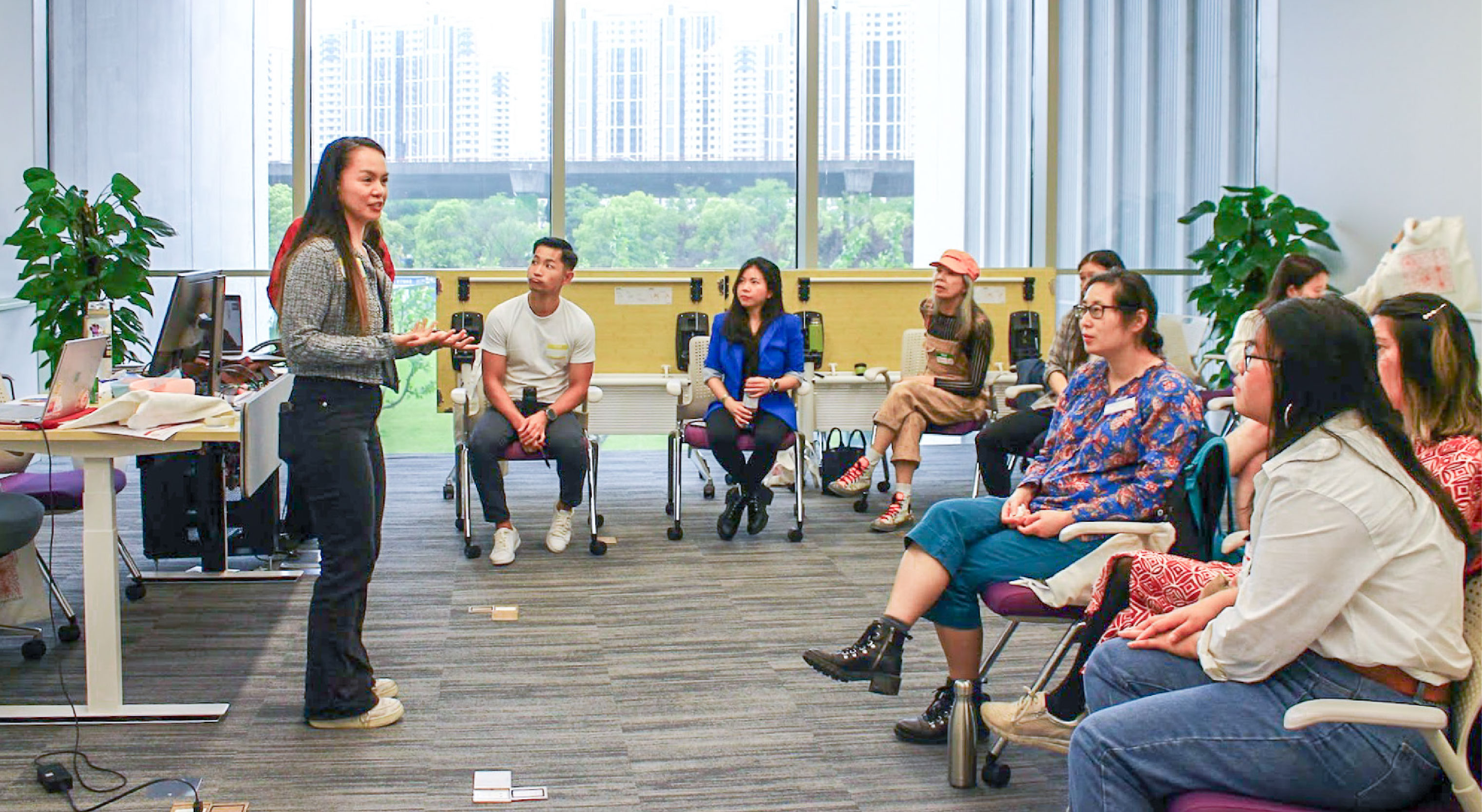
Master of Social Work Graduate Student, Emma Roberts-Vaurio leading a session on homecoming to wrap up the Second Annual Adoptee Symposium.
The symposium concluded with reflections on homecoming, led by Emma Roberts-Vaurio, in an activity encouraging adoptees to reflect on their return to their country of origin through creative writing, journaling, or drawing.
“I chose the word ‘homecoming’ because it is a concept I have been pondering in relation to my returning to China, while asking myself how do I define the concept of ‘home,’” explained Roberts-Vaurio.
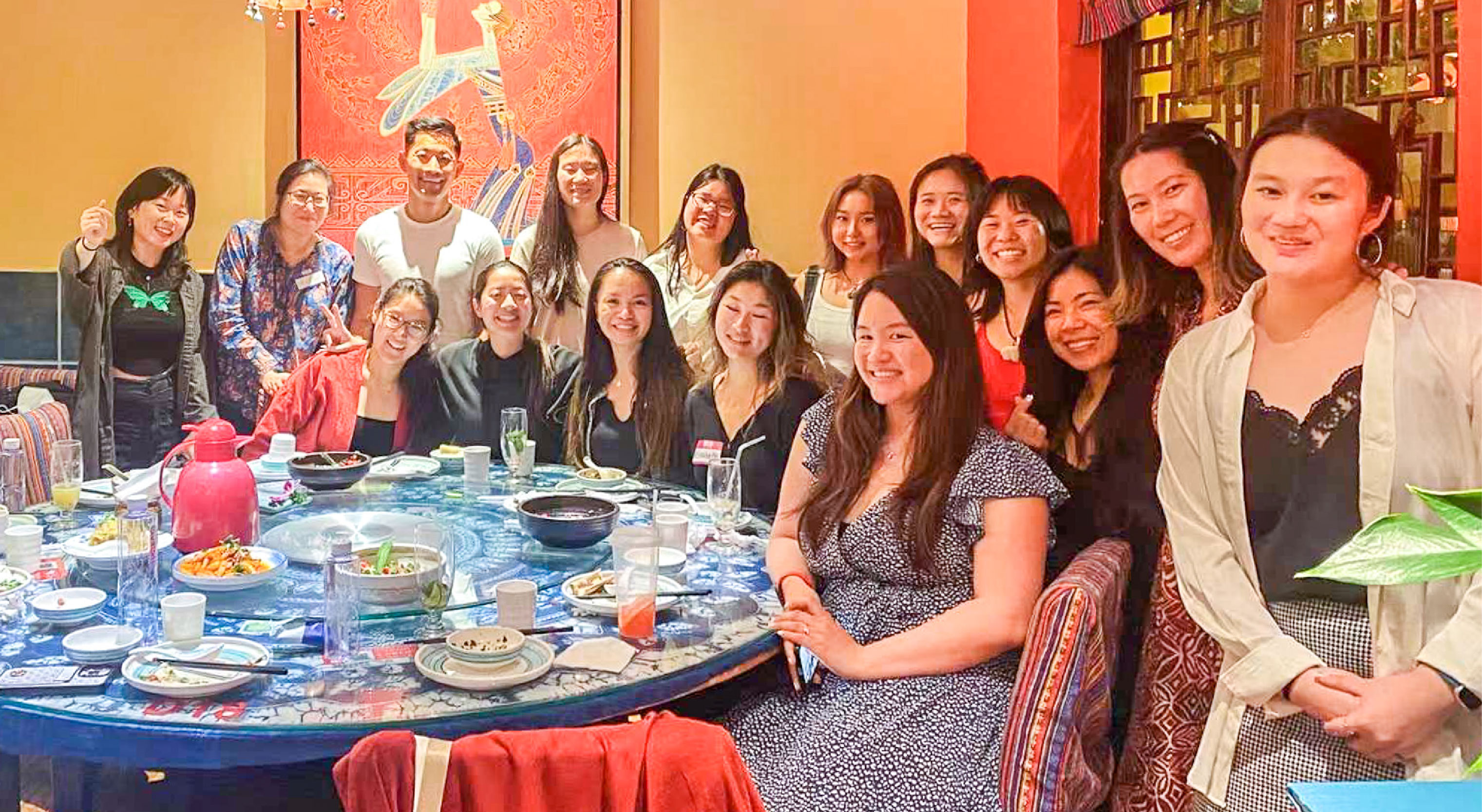
The symposium’s closing dinner
The symposium closed with a group dinner at a Yunnan restaurant where adoptees enjoyed conversations and sharing reflections over a meal. Many of the participants said the symposium helped them feel connected and empowered, and they expressed a desire for more Chinese adoptee-centered events in the future. “We, as Chinese adoptees, are part of China’s past, present, and future,” said Kelly. “One cannot fully understand China without understanding Chinese adoptees.”


